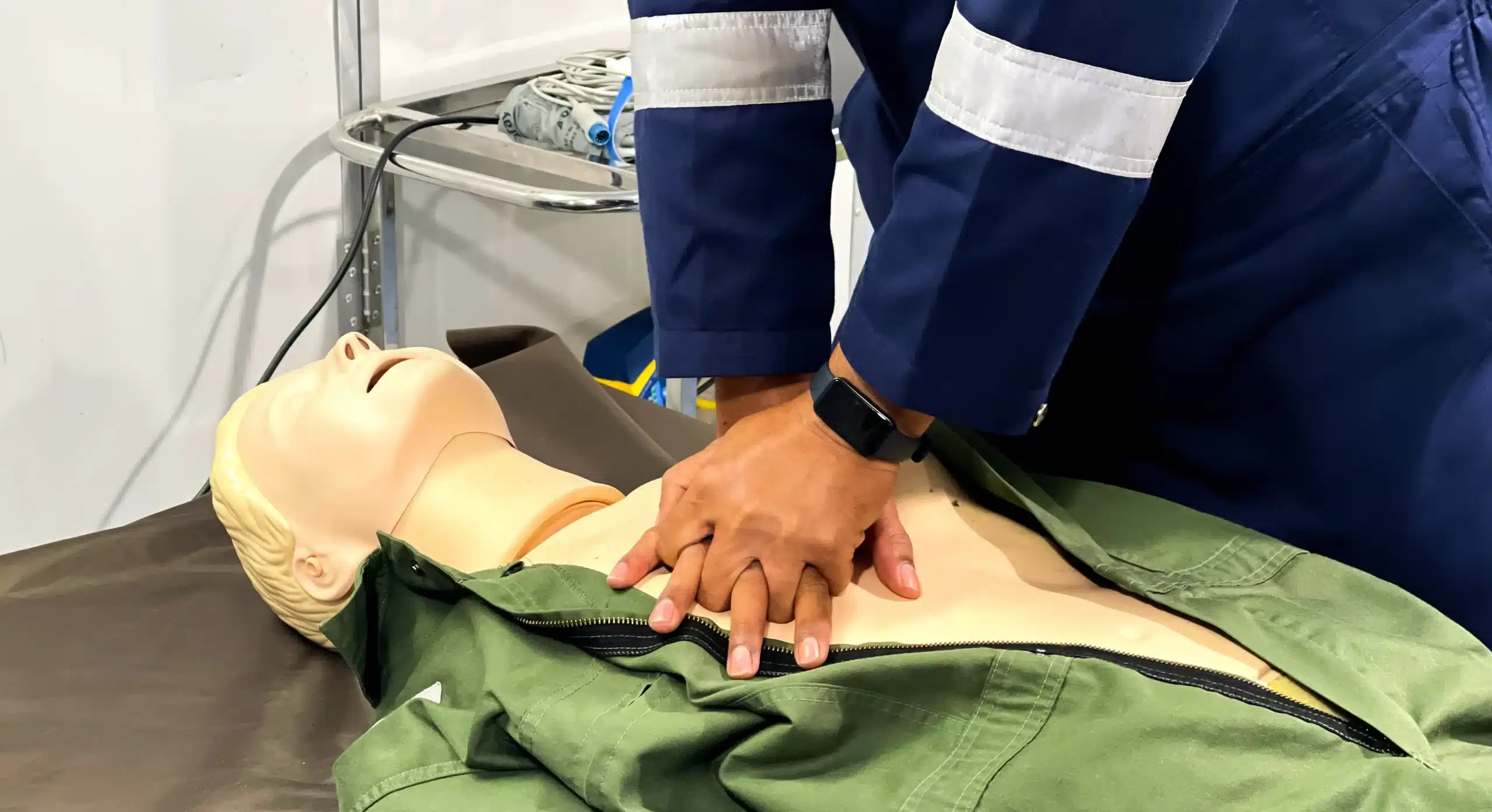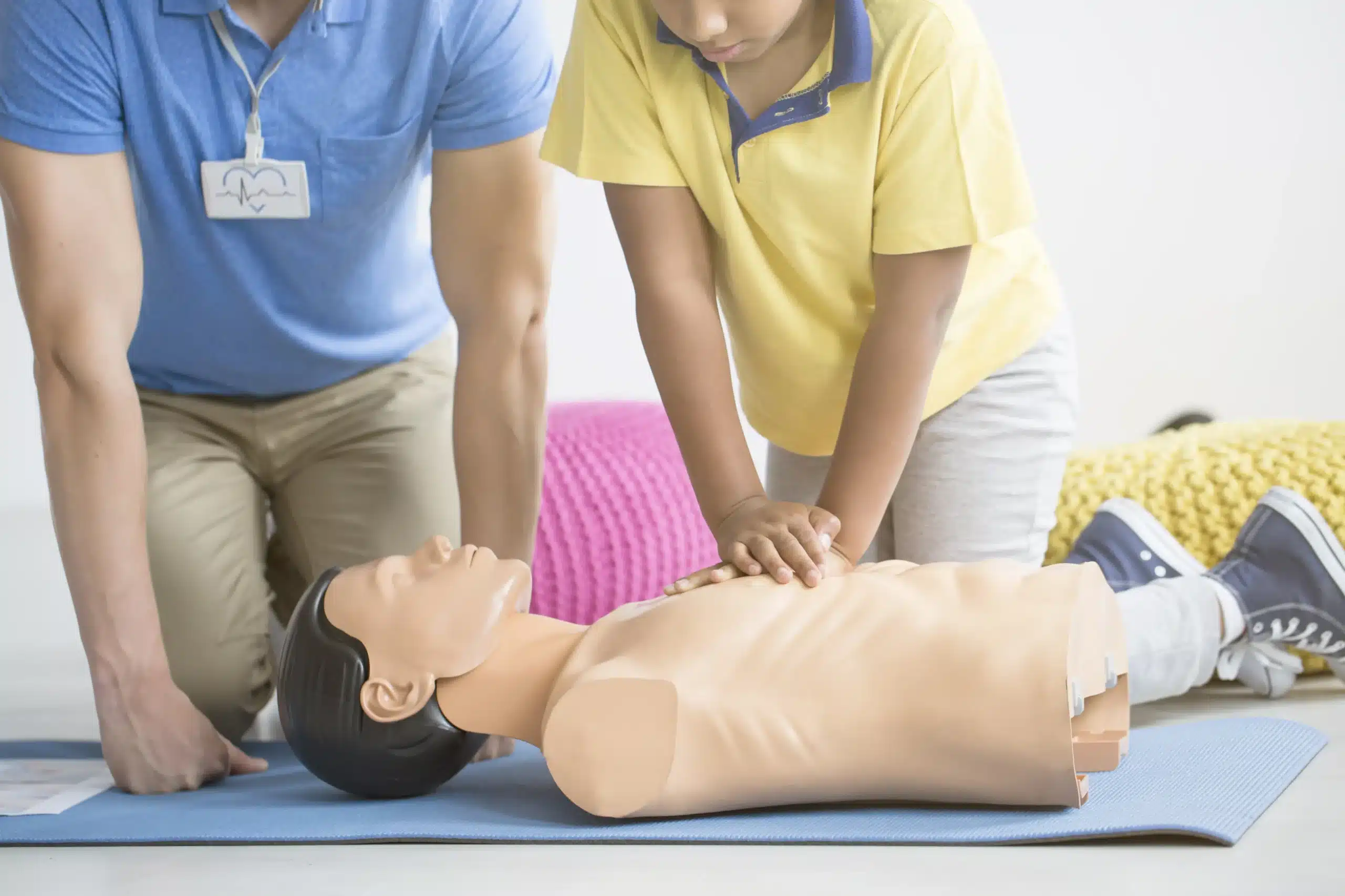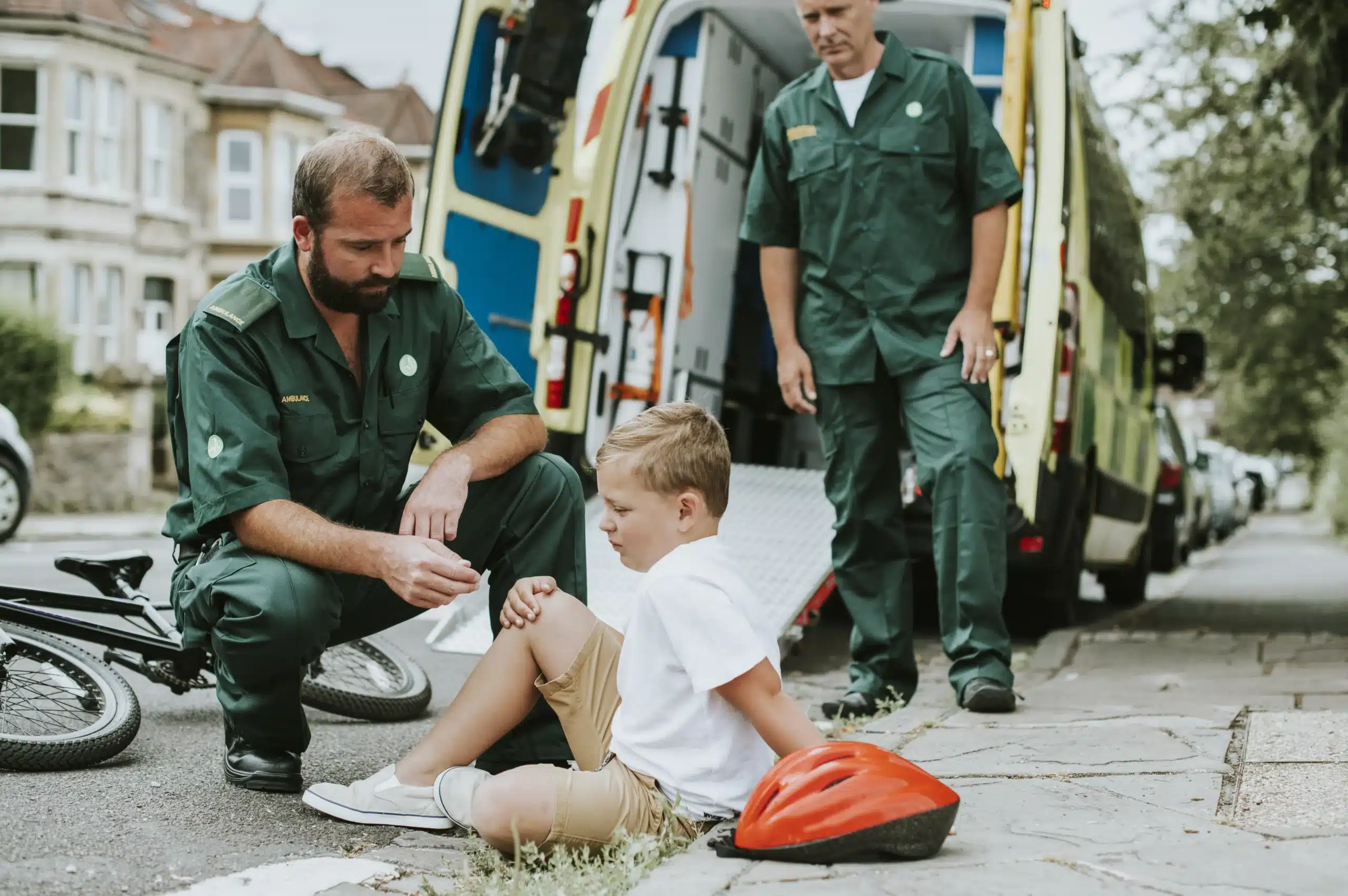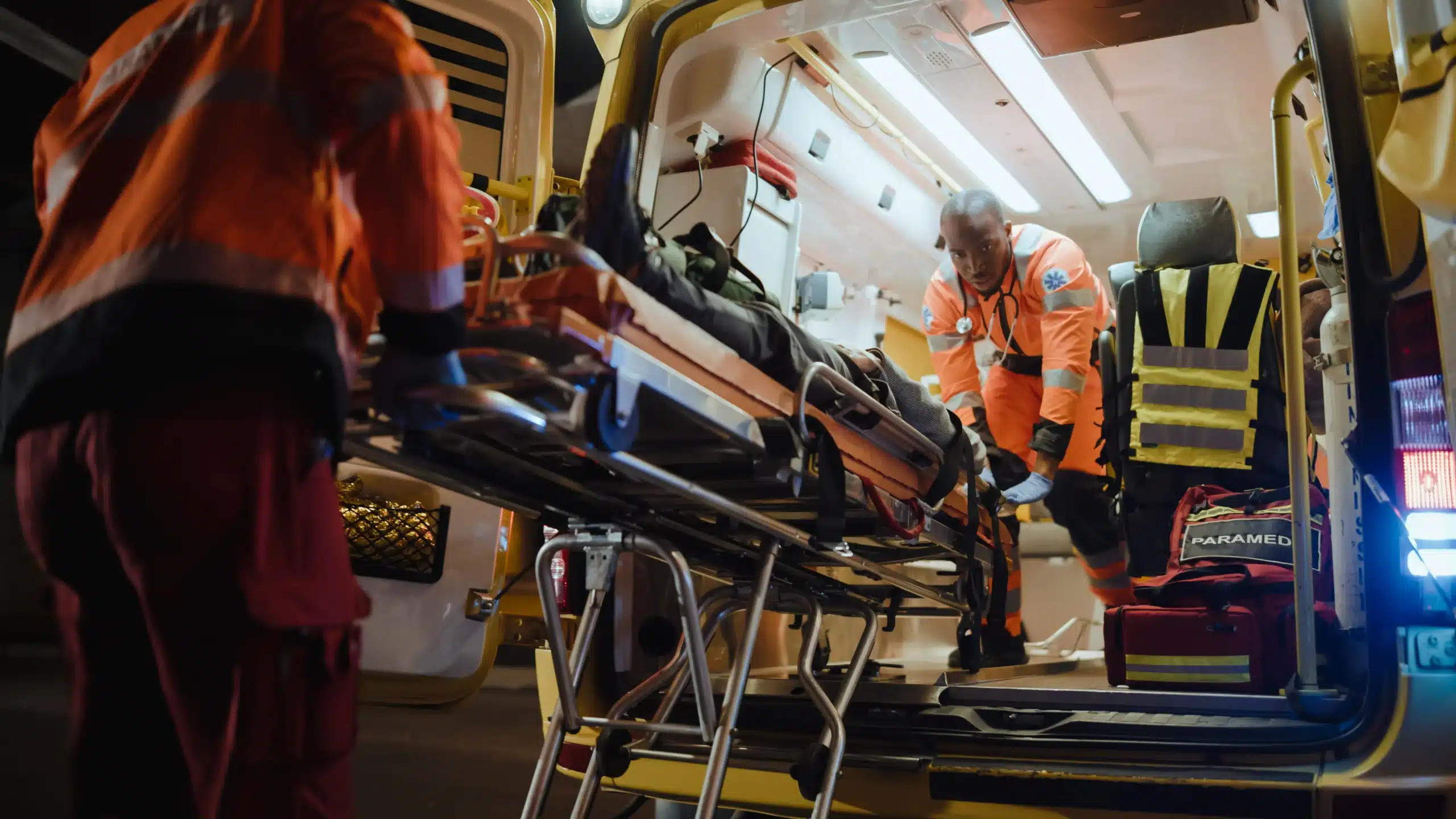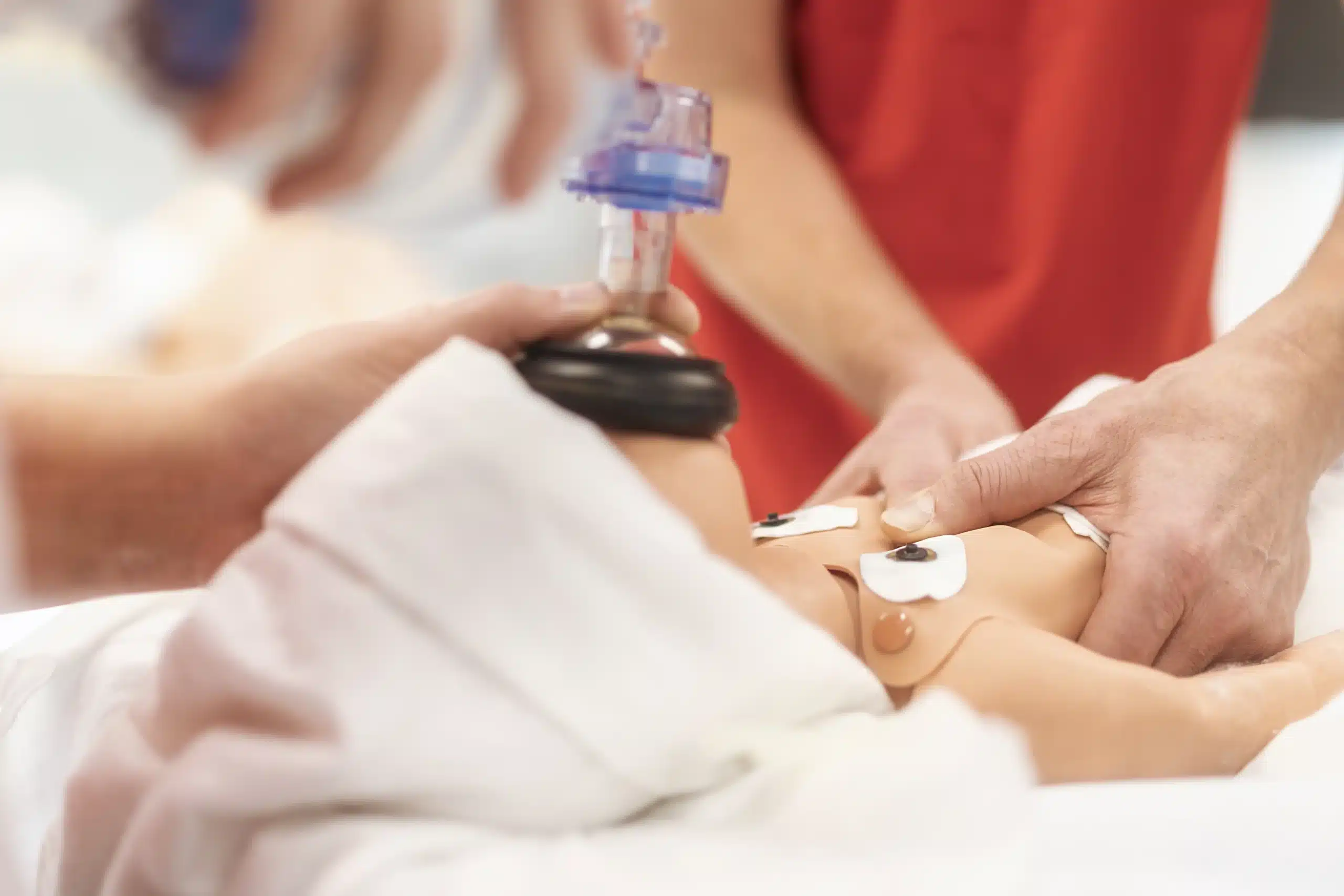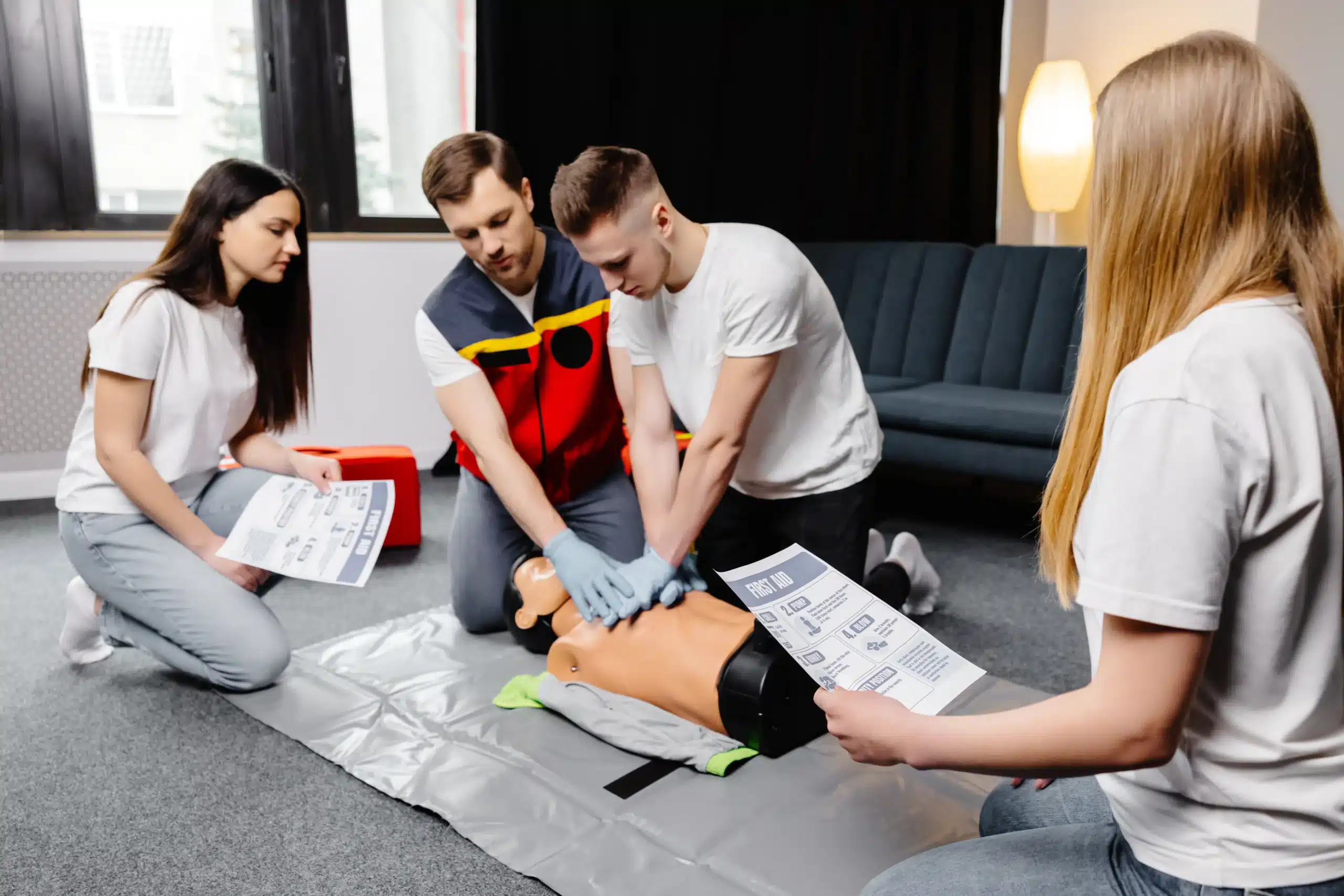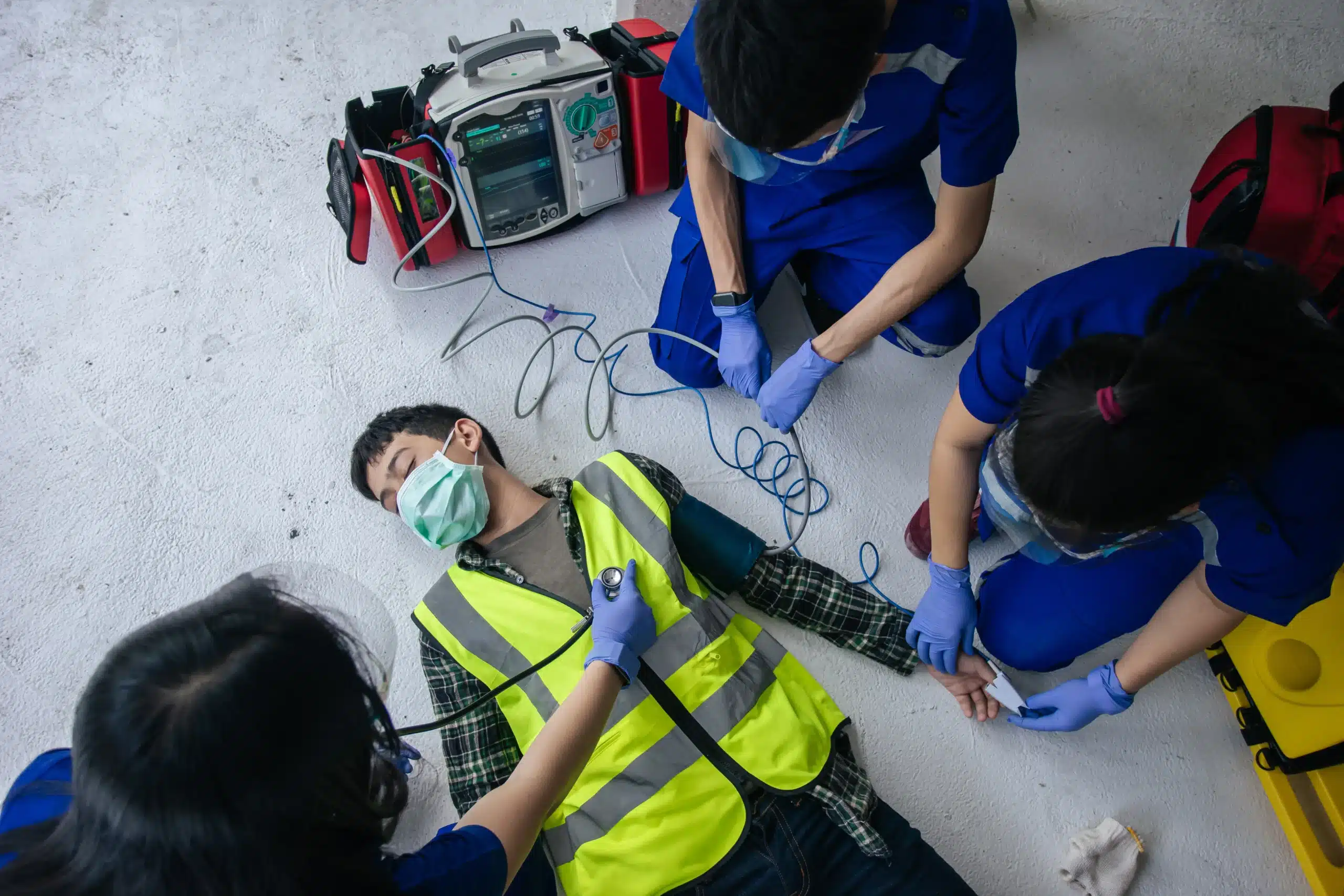Basic life support (BLS) is more than just a set of skills; it’s a commitment to being prepared for the unexpected. In Morgan Hill, having BLS training can empower you to respond effectively during medical emergencies. This guide will help you understand the importance of BLS, what it entails, and how to get certified in Morgan Hill. We’ll cover the key differences between BLS and CPR, the benefits of BLS certification, and the various training options available in Morgan Hill, including those offered by Morgan Hill CPR Classes. We’ll also discuss the costs associated with BLS training, potential discounts, and what a typical training course looks like. Whether you’re a healthcare professional or a concerned citizen, this guide will provide you with the information you need to pursue BLS certification in Morgan Hill.
Key Takeaways
- BLS equips you for diverse medical emergencies: It’s a comprehensive skill set beyond standard CPR, covering AED use, choking relief, and more. Whether you’re a healthcare professional or not, BLS training empowers you to act confidently in a crisis.
- Select your BLS course strategically: Consider your background, certification needs, and budget. AHA-certified providers like Morgan Hill CPR Classes offer various options, including discounts and flexible schedules.
- BLS certification offers wide-ranging advantages: It boosts your professional profile, prepares you for personal emergencies, and contributes to a safer community. Invest in your future and your community’s well-being by becoming BLS certified.
What is Basic Life Support (BLS) in Morgan Hill?
Basic Life Support (BLS) is a crucial set of life-saving skills and protocols used in Morgan Hill, just like anywhere else. It’s designed for immediate response to life-threatening emergencies, especially cardiac arrest. BLS equips you with the tools to act quickly and confidently when every second counts. Think of it as the foundation for responding to medical crises, covering everything from CPR (cardiopulmonary resuscitation) and using an AED (automated external defibrillator) to relieving choking. These skills can make a real difference in someone’s life. Learn more about BLS.
BLS certification isn’t just for healthcare providers. While it’s essential for doctors, nurses, and EMTs, it’s also incredibly valuable for anyone who wants to be prepared for an emergency. Teachers, coaches, parents, and even babysitters can benefit from BLS training. Knowing these skills can empower you to help family, friends, coworkers, or even strangers in a critical situation. Explore our course offerings, available in over 60 cities, including Morgan Hill, San Jose, and Gilroy.
What Does BLS Training Cover?
Core BLS Skills
Basic Life Support (BLS) training equips healthcare providers and first responders with the skills to handle life-threatening emergencies. The curriculum, often based on guidelines from organizations like the American Heart Association and the American Academy of Pediatrics, focuses on a few core skills. These include rapid patient assessment, delivering high-quality CPR, and using an Automated External Defibrillator (AED). BLS also covers techniques for clearing obstructed airways and responding to opioid overdoses. Because emergencies often require a team effort, BLS courses emphasize teamwork and communication in high-pressure situations. Finally, understanding the legal aspects and safety precautions during emergencies is a key component of BLS training. This comprehensive approach prepares individuals to confidently and effectively manage various medical crises. For more information on BLS classes, you can explore resources like the American Red Cross BLS Training.
BLS vs. CPR: What’s the Difference?
While both BLS and CPR are essential for emergency care, they differ in scope and target audience. BLS (Basic Life Support) certification is designed for healthcare professionals—think doctors, nurses, paramedics, and EMTs—and provides a broader skill set applicable to various medical emergencies. CPR (Cardiopulmonary Resuscitation) training, on the other hand, focuses primarily on the immediate life-saving techniques of chest compressions and rescue breaths. CPR courses are often shorter and more readily accessible to the general public, sometimes even available online. BLS covers a more comprehensive approach to airway management, breathing support, and circulation. It includes initial patient assessment, airway maintenance, rescue breathing, and chest compressions, making it a more extensive program than standard CPR. To understand the distinctions further, resources like Dreambound’s comparison of CPR/BLS and EMT roles and Oxford Academic’s overview of the four basic life support components offer valuable insights. If you’re a healthcare provider, BLS certification provides you with a comprehensive toolkit for managing a range of medical emergencies, while CPR training equips anyone with the essential skills to respond to cardiac and respiratory arrest.
Find a BLS Course in Morgan Hill
Finding the right BLS course can feel overwhelming with so many options available. This section breaks down the different types of BLS certification in Morgan Hill, making it easier to choose the best fit for you.
American Heart Association Courses
The American Heart Association (AHA) sets the standard for high-quality CPR and BLS training. AHA BLS courses in Morgan Hill cover essential life-saving skills, including CPR, AED use, and relief of choking. These courses cater to a wide range of individuals, from healthcare providers and first responders to those simply wanting to learn these vital skills.
Red Cross Offerings
The American Red Cross also provides BLS training, often combined with First Aid certification. They offer various learning formats, including online, in-person, and blended learning options, allowing you to choose what best suits your schedule and learning style.
Specialized Training with Morgan Hill CPR Classes
For AHA-compliant training in Morgan Hill, Morgan Hill CPR Classes offers a range of certification courses, including BLS. As a woman-owned AHA Training Center, they prioritize high-quality instruction and flexible scheduling. They also serve nearby San Jose and Gilroy.
Choose the Right BLS Course
Picking the right BLS course is crucial for effective training. Think about your background and what you need the certification for—personal knowledge, job requirements, or something else. This will help determine the best fit.
Healthcare Professional vs. Layperson Courses
BLS courses cater to various people, from healthcare providers and first responders to teachers, caregivers, and the general public. The American Heart Association offers BLS classes in Morgan Hill designed for both healthcare professionals and laypeople. Understanding these distinctions helps you enroll in the appropriate course. Healthcare professionals, including doctors, nurses, and EMTs, need a more in-depth understanding of BLS because of their direct patient care roles. These courses cover advanced techniques and procedures beyond the scope of a layperson’s needs. If you’re a healthcare provider, look for a BLS course specifically designed for medical professionals, like the ones offered by Morgan Hill CPR Classes. If you’re learning BLS for personal preparedness or community involvement, a standard layperson course will equip you with the essential lifesaving skills.
Certification: Duration and Renewal
BLS certification through the American Heart Association is typically valid for two years. The AHA offers the Resuscitation Quality Improvement (RQI) program, a popular choice for healthcare professionals seeking BLS, ACLS, and PALS certification. This program provides a streamlined, efficient way to learn and maintain these crucial certifications. Digital certification is now standard, making accessing, printing, and sharing your credentials online easy, which simplifies employer verification. Remember to check renewal requirements and plan accordingly to maintain your certification’s validity. Regular renewal ensures your skills stay sharp and you remain up-to-date with the latest resuscitation guidelines.
BLS Course Costs & Discounts
Knowing the price range for BLS certification in Morgan Hill helps you budget and compare courses. This section breaks down average costs and highlights potential discounts.
Average Morgan Hill Prices
BLS course fees in Morgan Hill vary based on the training center, course format (in-person or blended learning), and included materials. Expect to find BLS certification courses ranging from $70 to $100. For the most up-to-date pricing, check directly with the training center, like Morgan Hill CPR Classes. Many providers in Morgan Hill base their programs on the American Heart Association guidelines, ensuring a solid foundation for your BLS training.
Group & Student Discounts
Many training centers offer discounts for group registrations, a cost-effective choice for workplaces or groups of friends. Students should inquire about potential discounts. Some centers, including Morgan Hill CPR Classes, offer reduced rates, recognizing the importance of affordable training for future medical professionals.
Low Price Guarantees
Look for training centers that offer a low-price guarantee, ensuring you’re getting the best value. Morgan Hill CPR Classes provides this guarantee, demonstrating their commitment to affordable, high-quality training. A competitive price can give you extra confidence when selecting a BLS course.
Schedule & Register for BLS Classes
Finding the right BLS class is easier than you think, especially with the flexible options available in Morgan Hill. We offer courses seven days a week to accommodate busy schedules. Whether you’re a healthcare professional or preparing for a new baby, we have a class time that works for you.
Flexible Class Times
At Morgan Hill CPR Classes, we understand that your time is valuable. That’s why we offer BLS classes seven days a week, giving you the flexibility to choose a time that fits your schedule. We serve Morgan Hill, San Jose, and Gilroy, making it convenient for residents across these areas to access high-quality training.
Register Online
Registering for your BLS class is quick and easy. Simply visit our website and select the date and time that works best for you. You’ll receive immediate confirmation and all the details you need to prepare for your course. A quick tip: make sure you use a computer or tablet to complete the online portion of the American Heart Association courses—phones aren’t compatible with the system.
In-Person vs. Blended Learning
We offer both in-person and blended learning options for our BLS courses. Blended learning combines online coursework with in-person skills sessions. This format allows you to complete the cognitive portion of the course at your own pace, typically about two hours, before attending a hands-on session. This approach provides a flexible and convenient way to earn your BLS certification. Whether you prefer the traditional classroom setting or the flexibility of online learning, we have a format that suits your learning style.
What Happens During BLS Training?
This section walks you through a typical BLS training course, from the online portion to the hands-on skills practice and final assessment. Knowing the process beforehand can help you feel prepared and confident.
Course Duration and Format
BLS training often starts with online learning. The American Heart Association’s HeartCode BLS online course, for example, takes about two hours to complete. This format lets you learn the fundamentals at your own pace before the in-person skills session. Morgan Hill CPR Classes offers various scheduling options, including on-site training for businesses, making it easier to fit the training into your schedule.
Hands-On Practice
The core of BLS training is hands-on practice. After finishing the online portion, you’ll participate in a skills session with a certified instructor. This session focuses on essential skills like CPR, using an AED, and relieving choking. You’ll practice on mannequins to gain experience in a safe environment. This hands-on component builds muscle memory and confidence for real-life emergencies.
Assessment & Certification
After the hands-on practice, you’ll move on to the assessment. This typically involves demonstrating your BLS skills to the instructor. Successfully completing the skills check earns you your official BLS certification card. The American Heart Association’s RQI program offers a streamlined path to certification and recertification for BLS, ACLS, and PALS for healthcare professionals. This program emphasizes regular practice and assessment to maintain high-quality resuscitation skills.
Top BLS Trainers in Morgan Hill
Finding the right BLS training provider is crucial for receiving quality instruction and a recognized certification. Here are some of the top BLS trainers in Morgan Hill:
Safety Training Seminars
Safety Training Seminars is a woman-owned American Heart Association (AHA) Training Center offering various certification courses. They provide BLS, ACLS, PALS, CPR, and First-aid training in Morgan Hill, making them a comprehensive resource for individuals and healthcare providers. Their commitment to daily classes in over 60 cities, combined with a low-price guarantee, makes them an accessible and affordable option.
Bay Area CPR
Bay Area CPR partners with Safety Training Seminars to offer AHA-certified BLS, ACLS, PALS, and CPR classes in Morgan Hill. This collaboration expands access to essential life-saving training for residents of Morgan Hill and surrounding areas. Their courses cater to diverse learning needs, ensuring participants receive effective and comprehensive instruction.
American Red Cross
The American Red Cross is a nationally recognized organization providing BLS certification courses designed for healthcare professionals. Their program emphasizes essential life-saving skills, focusing on managing breathing and cardiac emergencies. The Red Cross’s established reputation and comprehensive curriculum make them a reliable choice for BLS certification.
Morgan Hill CPR Classes
Morgan Hill CPR Classes offers BLS training suitable for a broad audience, from healthcare professionals and first responders to educators, childcare providers, and the general public. This inclusive approach ensures that anyone interested in acquiring life-saving skills can find a suitable course. Their classes equip participants with the knowledge and confidence to respond effectively in emergencies.
Instructor Qualifications & Training Quality
When your health or the health of a loved one is on the line, you want to know the person providing CPR is highly qualified. Choosing a BLS course with certified instructors who maintain their skills is critical. This section explains what to look for in a BLS instructor and how Morgan Hill CPR Classes ensures top-tier training quality.
AHA Certification Requirements
The American Heart Association (AHA) sets rigorous standards for BLS instructors. These standards ensure instructors have up-to-date knowledge and skills in CPR techniques, using an AED, and relieving choking. AHA-certified instructors undergo comprehensive training, covering everything from adult, child, and infant CPR to using airway adjuncts and special resuscitation situations. This detailed training ensures instructors can effectively teach these life-saving skills. Morgan Hill CPR Classes instructors meet these stringent requirements, giving you confidence in their abilities. Our classes cater to various individuals, from healthcare providers to community members seeking BLS certification.
Instructor Experience
Beyond basic certification, real-world experience significantly enhances an instructor’s ability to teach BLS. Instructors with a background in healthcare or emergency response often bring valuable insights and practical knowledge to the classroom. Morgan Hill CPR Classes is a woman-owned AHA Training Center, meaning our instructors have met the AHA’s standards and bring practical experience to their teaching. This experience translates to more engaging and relevant training. We offer various courses, including ACLS (Advanced Cardiovascular Life Support) and PALS (Pediatric Advanced Life Support), demonstrating our commitment to comprehensive resuscitation training.
Ongoing Instructor Education
Medical knowledge and CPR techniques evolve. Ongoing education is crucial for BLS instructors to stay current with the latest guidelines. The AHA offers programs like the Resuscitation Quality Improvement (RQI) program to help healthcare professionals maintain and improve their resuscitation skills. This program uses innovative technology and personalized learning to ensure competency. Morgan Hill CPR Classes supports ongoing instructor education, ensuring our team stays at the forefront of life-saving techniques. We understand the importance of continuous improvement in resuscitation training and encourage our instructors to participate in programs like RQI. This dedication benefits our students, providing them with the most current and effective BLS training.
Benefits of BLS Certification
Getting your BLS certification isn’t just about checking a box; it’s about equipping yourself with life-saving skills and opening doors to new opportunities. Whether you’re a healthcare professional, a concerned citizen, or somewhere in between, BLS certification offers a range of valuable benefits.
Professional Advantages
For many healthcare providers and other professionals, BLS certification is a job requirement. It demonstrates a commitment to patient safety and high-quality care. American Heart Association BLS training is recognized nationwide and often preferred by employers. Even if it’s not strictly required for your role, having a BLS certification can make you a more competitive candidate and enhance your professional credibility. Morgan Hill CPR Classes offers courses designed for healthcare professionals, ensuring you receive the targeted training you need.
Personal Preparedness
BLS certification empowers you to respond confidently during medical emergencies. Knowing you have the skills to provide immediate assistance to a loved one, a stranger, or even a pet can bring immense peace of mind. The comprehensive course prep covers essential life-saving techniques, from CPR and how to use a keychain CPR mask to recognizing and responding to various medical crises. This preparedness extends beyond your immediate circle, allowing you to be a valuable asset in any emergency situation.
Community Impact
Becoming BLS certified contributes to a safer and more resilient community. When more people are trained in BLS, the chances of someone receiving timely and effective intervention during a cardiac arrest significantly increase. This collective preparedness creates a ripple effect, strengthening the community’s ability to respond to emergencies and ultimately saving lives. By getting your BLS certification in Morgan Hill, you’re not only investing in yourself but also in the well-being of your community. You become part of a network of trained responders, ready to make a difference when it matters most.
Related Articles
- BLS CPR Classes in Morgan Hill, CA – Morgan Hill CPR Classes
- CPR Certification Morgan Hill: Your Complete Guide – Morgan Hill CPR Classes
- CPR Certification in San Jose: Your Complete Guide – Morgan Hill CPR Classes
- BLS, ACLS, PALS, CPR & First-aid Classes in Morgan Hill, CA
- PALS Classes in Morgan Hill, CA – Morgan Hill CPR Classes
Frequently Asked Questions
What’s the difference between BLS and CPR certification? BLS (Basic Life Support) certification is more comprehensive than CPR (Cardiopulmonary Resuscitation) training. BLS is designed for healthcare professionals and covers a broader range of skills, including CPR, AED use, and airway management. CPR training focuses primarily on chest compressions and rescue breaths and is suitable for anyone wanting to learn basic life-saving skills. Think of BLS as the advanced version, equipping healthcare providers with a more complete toolkit for various medical emergencies.
How much does a BLS course in Morgan Hill typically cost? BLS course fees in Morgan Hill generally range from $70 to $100. The exact price depends on the training center, the course format (in-person or blended learning), and whether materials are included. It’s always best to check directly with the training provider for the most up-to-date pricing information. Many providers offer discounts for groups or students, so be sure to ask about those options.
How long is BLS certification valid, and how do I renew it? BLS certification is typically valid for two years. Renewal involves retaking the course to ensure your skills and knowledge are current with the latest guidelines. The American Heart Association offers the Resuscitation Quality Improvement (RQI) program, a convenient option for healthcare professionals to maintain their BLS, ACLS, and PALS certifications. Digital certification is now common, making it easy to access and share your credentials online.
What can I expect during a BLS training course? Most BLS courses begin with an online learning component, which you complete at your own pace. This is followed by an in-person skills session with a certified instructor, where you’ll practice essential skills like CPR, AED use, and airway management on mannequins. After demonstrating your proficiency in these skills, you’ll receive your BLS certification card.
Where can I find reputable BLS training in Morgan Hill? Several reputable organizations offer BLS training in Morgan Hill. Morgan Hill CPR Classes is a woman-owned AHA Training Center providing various courses, including BLS, ACLS, and PALS. They offer flexible scheduling, including weekend and evening classes. The American Red Cross also provides BLS training, often combined with First Aid certification. When choosing a provider, look for AHA-certified instructors and a curriculum aligned with the latest AHA guidelines.
